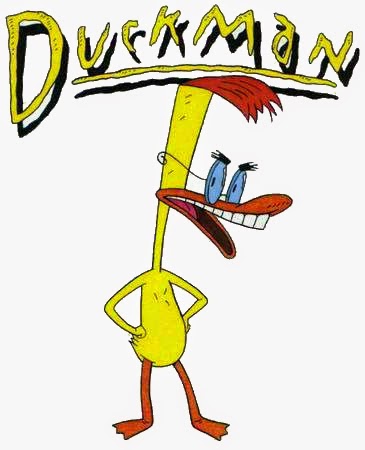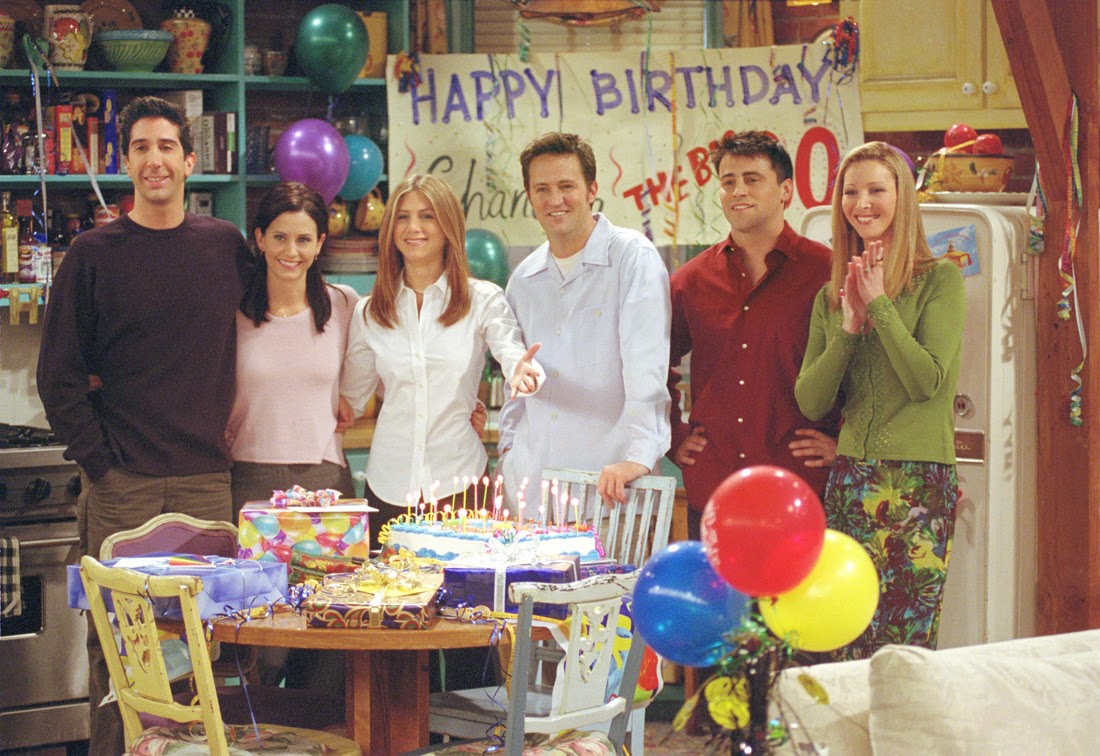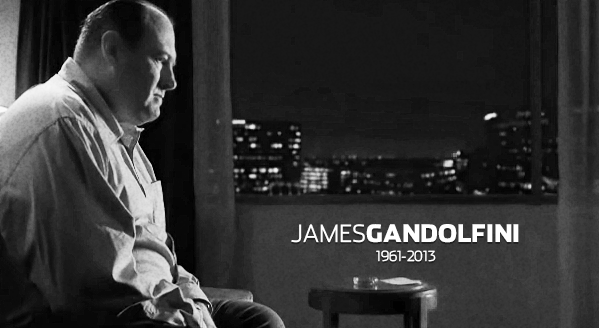Gone, but not forgotten
I find television very educating. Every time somebody turns on the set, I go into the other room and read a book. ― Groucho Marx
People love a happy ending. So every episode, I will explain once again that I don't like people. And then Mal will shoot someone. Someone we like. And their puppy. ― Joss Whedon (Firefly writer/directer)
*****
Here we pay tribute, not in any special order, to those programs we loved but caught in the cancelling machine. But first some technical stuff.
No mater what you call it - telly, boob tube, box, idiot box, tube, fat phone, hotel lazy, baby-sitter, idiot box - television watching has become a way of life. Did you know that people like to watch television. To put it another way, we are what we watch. And we watch what we are.
A new study from Thinkbox, the commercial television marketing association, claims to explain why live viewing satisfies all our television needs. The study was based on an analysis of 100 hours of footage from 18 households and a diary study of 662 adults. The researchers found six main reasons that people watch television:

to unwind,
for comfort,
to connect,
for an experience,
to escape, or
to indulge.
It's official: the average person now watches, at least, four hours of television a day.
Because the question of ‘What is on television?’ is really ‘What shall we watch?’ that is why this page exists... to show you what is out there. Not everything, mind you, but a sampling.

Television programming may be fictional or non-fictional (as in documentary and reality television). It may be topical (as in the newscast and some made-for-television movies) or historical or maybe just ment for entertainment. Regardless, good old tv is here to stay so lets see what's playing... or played.
Sci-Fi
Firefly (2002)


Ever watch
Firefly? It was only around for about a year.
Firefly is an dramatic space western series created by writer and director Joss Whedon. It follows the adventures of the renegade crew of
Serenity (also, a movie), a "Firefly-class" spaceship, that the central characters call home.
Critical response varied. TV Guide labeled the show as "oddball" and "offbeat", the Boston Globe wrote that Firefly was "wonderful, imaginative mess brimming with possibility". The creation of fans became crucial to the show popularity. Firefly generated a loyal base of fans during its three-month original broadcast run on Fox in late 2002. These fans, self-styled Browncoats, raised money for an ad in Variety magazine and conducted a postcard writing campaign to UPN. These and other continuing fan activities eventually persuaded Universal Studios to produce a feature film, Serenity. Unfortunately the fan campaign was unsuccessful in securing the show's continuation and low ratings resulted in cancellation by Fox in December 2002.
Quantum Leap (1989-1993)
 Quantum Leap
Quantum Leap featured a mix of humor, drama and melodrama, social commentary, nostalgia, and science fiction, which won it a broad range of fans. One of its trademarks is that at the end of each episode, Sam, starring Scott Bakula, "leaps" into the setting for the next episode, usually uttering a dismayed "Oh, boy!"
The series was struggling on Friday nights in its brief first season then moved to Wednesday but eventually returned to Friday and then to Tuesdays in late 1992 where it also performed well but, to help everyone channel change, the series finale aired in its successful Wednesday slot in May 1993.
Star Trek (1966-1969)

 Star Trek
Star Trek has been a cult phenomenon for decades. Fans of the franchise are called Trekkies or Trekkers. Whether it is one of the three spin-offs;
Star Trek: The Next Generation,
Star Trek: Voyager, and
Star Trek: Enterprise as well as the six original and six follow ups in the Star Trek film series they all followed the interstellar adventures of the captain and crew of an exploration vessel of the interstellar "United Federation of Planets". A fourth spin-off,
Star Trek: Deep Space Nine (DS9), was unlike the other
Star Trek TV shows in that it took place on a space station instead of a starship. Although
DS9's ratings remained solid, it was never as successful as the syndicated
Star Trek: The Next Generation.
Star Trek has been a cult phenomenon for decades, noted for its influence on the world outside of science fiction, and noted for its progressive civil rights stances - the original series included one of television's first multiracial casts, and the first televised inter-racial kiss.
Farscape (1999–2003)
.jpg) Farscape,
Farscape, an Australian/American science fiction television series, was abruptly cancelled after production had ended on its fourth season, ending the series on a cliffhanger because the writers understood there would be a fifth season. Later, a three-hour miniseries to wrap up the cliffhanger, titled
Farscape: The Peacekeeper Wars appeared by co-producer Brian Henson when he secured the rights to the series
.
In February 2014 it was reported that former series writer Justin Monjo had begun working on a screenplay for a new Farscape movie. It has been confirmed that a Farscape movie is in development but the movie is in very early stages.
__________
Adult Animation
Adult animation is genre of animation geared towards adults and older teens. Animated films of this nature paved the way for such groundbreaking animated television series as:
Ren & Stimply Show (1991)

 The Ren & Stimpy Show
The Ren & Stimpy Show,
or just
Ren & Stimply, premiered in 1991, on Nickelodeon. The series focused on the titular characters:
Ren Höek, an unstable chihuahua, and
Stimpson J. Cat, a good-natured, dimwitted cat. Together, this twisted twosome find themselves in crazy absurd adventures. The show ran for five seasons on the network and developed a cult following during and after its run.
Beavis and Butt-head (1993)
 Beavis and Butt-head
Beavis and Butt-head originally aired on the cable
television channel MTV from 1993 to 1997. Each show contains short cartoons centering on a pair of post-pubescent teenagers who live and go to school in the fictional town of Highland, California. These cartoons are broken up by short breaks in which Beavis and Butt-head
watch music videos and poke fun at them.
 Beavis and Butt-Head
Beavis and Butt-Head became the focus of criticism from social conservatives while the conservative magazine,
National Review, defended it as a cleverly subversive vehicle for social criticism and a particularly creative and intelligent comedy. Either way, the show captured the attention of many young television viewers and is often considered a classic piece of 1990s youth culture and Generation X.
Space Ghost (1966-1968)
 |
| Space Ghost Coast To Coast |

The CBS
Space Ghost should not be confused with Cartoon Network's 1994 series called
Space Ghost Coast To Coast, a animated parody talk show.
Space Ghost, along with teenaged sidekicks, Jan and Jace, and their monkey, Blip, fight villains in outer space. Usually Space Ghost's sidekicks would get captured or trapped by the villains and Space Ghost would have to defeat the villains and save the day. Sounds like Superman, or maybe, Batman.
Daria (1997-2002)

 Daria,
Daria, a
Beavis & Butt-head spin-off, focuses on a smart, acerbic, and teenage girl named Daria Morgendorffer, who observes the world around her. The show a satire of high school
life, and full of allusions to and criticisms of popular culture and social
classes.
Reruns have appeared. In July 2012, MTV began airing a week of Daria reruns as part of its Retro Mania series.
Duckman (1994-1997)

IMDB describes
Duckman as "... a crass, womanizing duck works as a private eye with his level-headed pig sidekick, all-the-while raising a family as a single dad."
The title character was Eric Tiberius Duckman. Voiced by Jason Alexander, he was portrayed as a lazy, incompetent, self-serving, morally unscrupulous, sexual deviant.
Like by some but not by others, in January 2009 IGN listed Duckman as the 48th best in the Top 100 Best Animated TV Shows.
__________
Comedy/Drama
Frasier (1993-2004)

 Frasier
Frasier was a spin-off of
Cheers, starred: Kelsey Grammer, David Hyde Pierce, John Mahoney, Jane Leeves, Peri Gilpin, and Moose (a veteran canine actor) and was one of the most successful spin-off series in television history. Grammer plays psychiatrist Dr. Frasier Crane who returns to his
hometown of Seattle, Washington, following the end of his marriage and his life in Boston.
Here is some trivia for you:
Grammer was briefly the highest paid television actor in the United States for his portrayal of Frasier
Grammer tied the record for the longest running character in prime time, equaling James Arness' twenty years as Marshal Dillon on Gunsmoke. Friends
Friends (1994-2004)
 Friends
Friends lasted ten seasons and is now in syndication. It revolves around a circle of friends living (but not together) in Manhattan.

First impression is that they all live together. Wrong! The only roommates are Monica (Courteney Cox) and Rachel (Jennifer Aniston) and across the hall is Joey (Matt LeBlanc) and Chandler (Mathew Perry). Phoebe (Lisa Kudrow) lives with her mother and Ross (David Schwimmer), well he is Monica's brother and has been married several times ... just where he lives isn't that important. Besides, he and Rachel have a thing going, as do Monica and Chandler. Joey, a struggling actor, is a womanizer and Phoebe, out in left field most of the time, marries some guy named Mike Hannigan.
The Sopranos (1999-2007)
 The Sopranos
The Sopranos series revolved around the fictional New Jersey-based Italian-American mobster Tony Soprano (James Gandolfini), and the difficulties he faces as he tries to balance the conflicting requirements of his home life and his criminal organization.
Although The Sopranos was a major ratings success, deviating from the traditional dramatized image of the gangster in favor of a simpler, more accurate reflection of mob life, the show has been frequently criticized for allegedly perpetuating negative stereotypes about Italian Americans. But a national survey reported that 65% of Americans disagreed.
Twin Peaks (1990-1991)
 Twin Peaks
Twin Peaks was a serial drama that followed an investigation headed by FBI
Special Agent Dale Cooper (Kyle MacLachlan) into the murder of homecoming queen Laura Palmer (Sheryl Lee).
Even though a media analyst once said, "I don't think it has a chance of succeeding," the show received a positive response from TV critics and the two-hour pilot was the highest-rated movie for the 1989–90 season. Eventually the audience dropped and Twin Peaks was cancelled in Season Two... with an unresolved cliffhanger.
Monty Python's Flying Circus (1969-1974)

 Monty Python’s Flying Circus
Monty Python’s Flying Circus (known during the final series as just
Monty Python) was a British comedy series composed of surreality, risqué or innuendo-laden humour, sight gags and observational sketches without punchlines.
*****
There you have it. Many, many more have received the cutter's knife but only so many can be represented here. Fans can view full episodes on the internet at various tv sites with little effort.
Occasionally this page will be updated with different programs.
Enjoy!
 They were also the best places to show off your wheels - just don't forget a date. Many of us would 'hang out' at a local drive-in restaurant afterwards, like in that movie Grease. No, the waitresses didn't wesr roller-skates. Later, the drive-in hangout became more important than the Drive-in movie.
They were also the best places to show off your wheels - just don't forget a date. Many of us would 'hang out' at a local drive-in restaurant afterwards, like in that movie Grease. No, the waitresses didn't wesr roller-skates. Later, the drive-in hangout became more important than the Drive-in movie.





.gif)











.jpg)

















